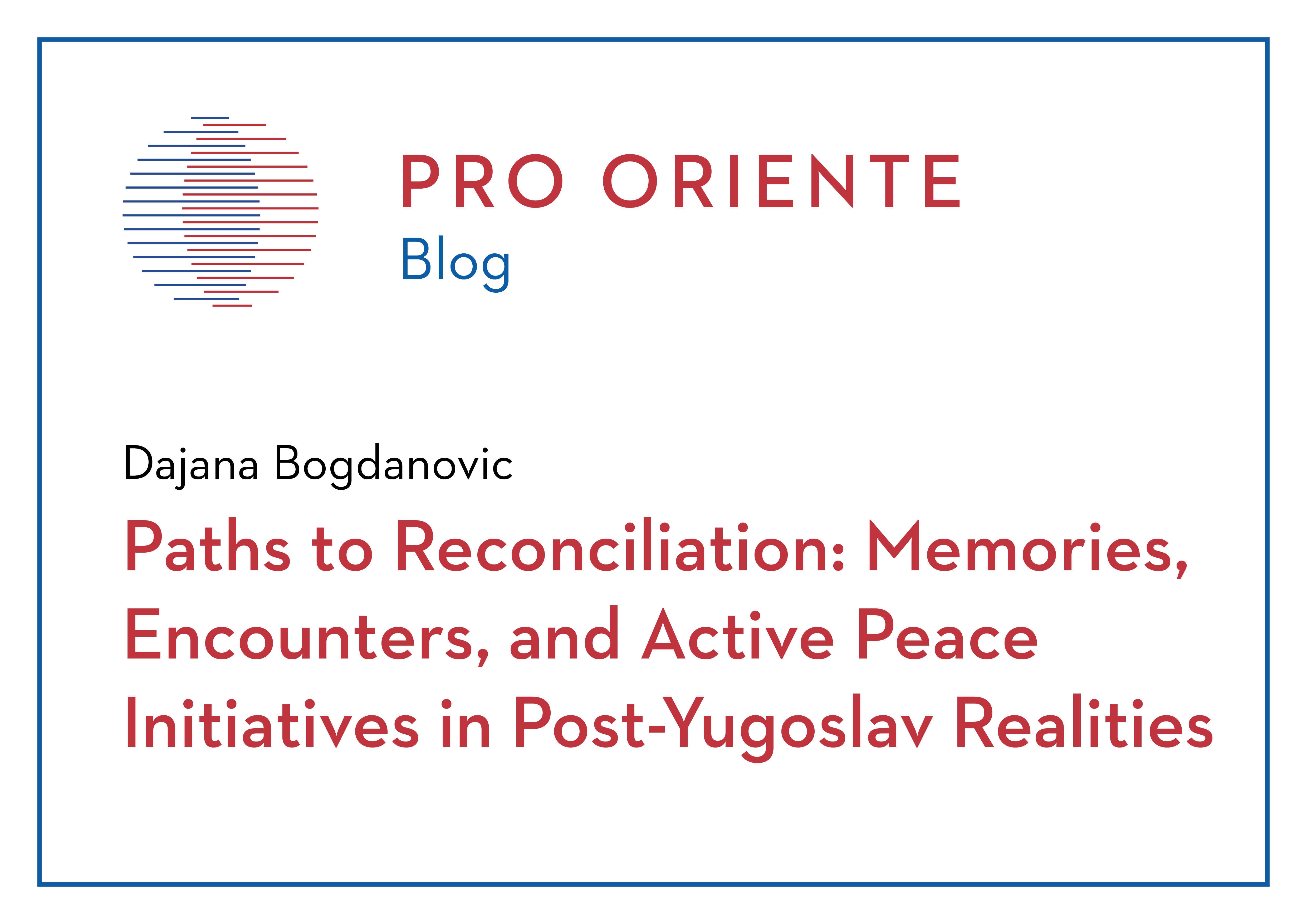Paths to Reconciliation: Memories, Encounters, and Active Peace Initiatives in Post-Yugoslav Realities
23. September 2024
Thema: Healing of Wounded Memories

Every monotheistic religion relies on same principles- those of love, respect and mercy. If all of us were created as the picture of God, in all its diversity, why do we use this diversity for separation instead of complementation? Religion in the Balkans has been an important factor in reconciliation, shaping the minds and influencing the hearts of believers, for finding a path towards the others in a positive way, and being influenced by positive examples of inter-religious dialogue, seen among religious leaders, but also different initiatives which gather large numbers of citizens.
One of the questions is how much influence religions have on citizens in the Balkans, taking into consideration the statistical data of countries and how many people declare themselves as believers. Taking into consideration that many citizens declare themselves as believers, therefore a conclusion can be made that religion is one of the most important driving forces for reconciliation, and that it has to be taken into consideration in any type of reconciliation initiative in the Balkans. Religious leaders have a unique role in shaping the lives of citizens, through dissemination of God’s word, but also through usage of religion and Holly Books in advising citizens on how to approach all segments of life.
There are numerous positive examples of inter-religious dialogue in Bosnia and Herzegovina, and neighbouring countries, from gathering of top religious leaders, such as the gathering of Bishops and Episcopes in Croatia, to visit to the places of suffering of all four peoples in Bosnia and Herzegovina. One of the important segments is working with youth, particularly on inter-religious dialogue, and the steps youth needs to undertake in order to fulfil the circle of reconciliation, from cultural to sports activities, connecting them together, while learning about each other, as well as what are the most powerful forces that can attract them to interreligious dialogue. Furthermore, it is important to consider the ratio of majority and minority, and who is more motivated and into inter-religious dialogue, while counting on that a majority in one area could be minority in some other area.
The idea of visiting other’s places of worships, such as Mosques, Synagogues and Churches is of crucial importance for decrease of prejudice and stereotypes, since many times we have witnessed the transformative force it has on people when they enter it. Moreover, spaces, weather religious or public, play an important role on people, and the initiatives for shaping the spaces which will be used for joint activities, especially for different types of gatherings, which also include those that have inter-religious character, but not mainly religious practice, are important and needed in local communities through Balkans. Even though it is commonly believed, with a dose of fear, that engaging in inter-religious dialogue could potentially decrease their affiliation towards their religion, the experience has shown that those that engage in inter-religious dialogue feel even more connectedness and are proud of belonging to their own religion. Often, participants of different activities stated that sometimes they, not only discovered new things about other religions, but found out new things about their own religion they did not know, or think of before.
Media attention to inter-religious dialogue should be given more, and through the Balkans, not enough of media attention has been given to inter-religious dialogue. There have been only a few initiatives to cover different attempts of religious leaders and other stakeholders included into peace-building, but since this is a two way relationship, Religious Institutions should be more open towards media and include them in the initiatives of inter-religious dialogue. Openness towards wider public should also come in form of fruitful discussions, and not only reportage or coverage of media events, and in recent history, there were only a few of those. This could result in direct decrease of language of hatred, unnecessary and offensive comments on social media, as well as lead to open and constructive discussions.
In conclusion, open and constructive discussion is of crucial importance for dialogue, without, it is just a monologue, or a conversation with lot unspoken, which sometimes can divide more than it currently is. When participating in inter-religious dialogue, it provides a positive change among people, and sends positive messages to whole region, having transformative and snowballing effect and creating more peaceful and harmonic societies where people understand each other more, and have no problem engaging in difficult conversation, if they believe that conversation is led with a good faith. Inter-religious dialogue is one of the most important forms of dialogue, and should always be considered when there are more different religious groups living together in one, or in more neighbouring states.



